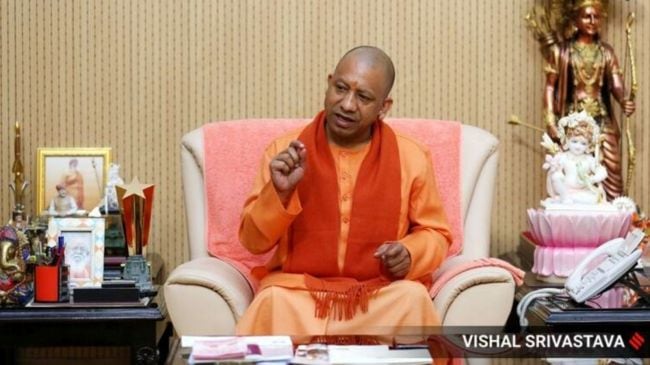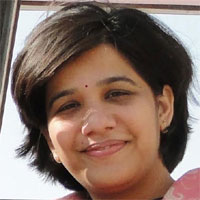In a major step, UP prohibits caste-based political rallies, public signs
The 10-point directive from officiating Chief Secretary Deepak Kumar to all the district magistrates, secretaries and heads of police across state also prohibits 'caste-based markings in police records as well as public display of caste-based signs' and aims 'to eliminate caste-based discrimination' in the society. Vehicles displaying caste names or slogans in public places will be challaned, the order says.
 Uttar Pradesh Chief Minister Yogi Adityanath. (File)
Uttar Pradesh Chief Minister Yogi Adityanath. (File) The Uttar Pradesh government has prohibited caste-based political rallies saying they were a threat to “public order” and “national unity” – a step that would have long-term political implications given the assembly election is two years away.
Citing a September 16 Allahabad High Court order, the order, issued late Sunday by officiating Chief Secretary Deepak Kumar to all the district magistrates, secretaries and heads of police across state and districts, says caste-based rallies organised for political purposes promote caste conflict in society are contrary to “public order” and “national unity” and are strictly prohibited across the state.
The10-point directive also prohibits “caste-based markings in police records as well as public display of caste-based signs” and aims “to eliminate caste-based discrimination” in the society. It also includes orders to issue challans to vehicles bearing caste names, slogans and stickers under relevant sections of the Central Motor Vehicles Act, 1988.
The only exception being made for crimes under the Scheduled Castes and Scheduled Tribes (Prevention of Atrocities) Act.
The order is likely to have an impact on both the ruling Bharatiya Janata Party, especially its allies such as NISHAD party, Suheldev Bhartiya Samaj Party or Apna Dal as well as the Opposition, especially since caste-based meetings in different forms become more frequent in the run-up to the election. With assembly elections due in 2027, parties have already started their caste-based outreach.
The order says officials are aware of the government’s policy for an inclusive policy that’s consistent with constitutional values, and directs authorities to take effective action against those who incite conflict through “caste-based displays and protests”.
The order cites a recent direction by Allahabad High Court. In its order, the high court directed the state’s home department and DGP to frame and implement standard operating procedures by amending police manuals/regulation, if necessary, to prohibit caste disclosure in all police documents, barring cases lodged under the Scheduled Castes and Scheduled Tribes (Prevention of Atrocities) Act, 1989.
The court also said that the justification offered by the DGP was detached from “the complex realities of Indian society and the demands of professional policing”.
Here’s what the government order says:
— The directive asks authorities to correspond with the National Crime Records Bureau to delete the column mentioning an accused’s caste in the format used on the CCTNS portal and “for making necessary arrangements in the CCTNS portal to mention the name of the mother along with the name of the father of the accused”. Until this change is made, caste information should be left out entirely from the portal.
— Police records — such as panchanamas, arrest memos and personal search memos — as well as notice boards at police stations should not bear caste information. The only exception to mentioning caste names is in case of crimes where there is a legal obligation, such as under the Scheduled Castes/Scheduled Tribes (Prevention of Atrocities) Act.
— Police records must have the name of the mother and father of the suspect.
— Vehicles with caste names, slogans, and stickers glorifying caste should be challaned under the Central Motor Vehicles Act, 1988.
— Signboards or announcements glorifying caste and declaring geographical areas as caste areas or estates should be removed immediately and effective steps should be taken to ensure that no such boards are put up in future.
— Social media messages glorifying or denigrating any caste should be strictly monitored. Strict action should be taken against those who spread caste hatred or incite caste sentiments through social media, the directive states.
What the HC said
In its order, the high court asked the state government to prepare a regulatory framework to amend the Central Motor Vehicle Rules (CMVR) to explicitly ban caste-based slogans and caste identifiers on all private and public vehicles. It also said that provisions under the Information Technology (Intermediary Guidelines and Digital Media Ethics Code) Rules, 2021, must be strengthened to flag and act against “caste-glorifying, hate-inducing content on social media.”
To the UP government, court observed: “It’s learnt that the notice board installed at all the police stations of Uttar Pradesh carries a column of the caste against the name of the accused”, and asked the government to “issue an appropriate order to delete (erase) the same with immediate effect”
The court also observed that “in rural India, sub-urban towns and even in certain colonies of district headquarters, certain disgruntled elements-driven by false caste pride and caste narcissism-have installed signboards glorifying caste and declaring specific geographical areas as caste territories or estates” and asked these to be removed.





